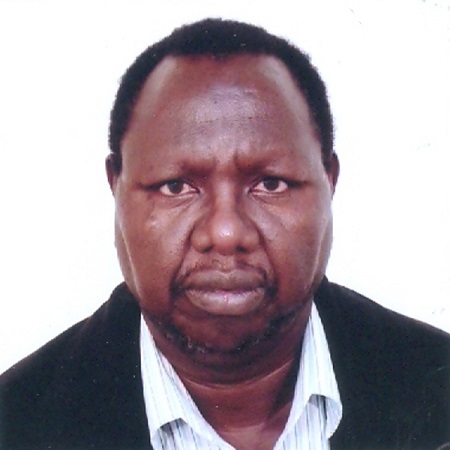-
CreatorTopic
-
11/04/2015 at 10:07 pm #4125
 AnneMember
AnneMember1) In completing your stakeholder engagement plan or action plan, did any questions come up that you would like feedback on from the group? For instance, would you like ideas for how to engage particular stakeholders on a specific topic? Feel free to post questions here.
2) Lastly, how has your understanding of GPP changed since you first enrolled in the course? What did you learn that surprised you?
-
CreatorTopic
-
AuthorReplies
-
-
12/29/2015 at 3:17 pm #4261
 HeidiMember
HeidiMemberThe GPP training has raised my personal awareness about the different stakeholders and the need to proactively communicate with them. The many real life case studies were very helpful in understanding the challenges around HIV prevention research.
A question – I hope people are still reading this discussion forum 🙂 – apart from the ebola example provided above, are you aware of any other disease indications were GPP is being applied?
Many thanks to Anne and Jessica, you are not only great GPP experts, but at the same time enthusiastic and encouraging teachers!
-
11/20/2015 at 9:44 am #4219
Phumla Jessica
MemberI share the sentiments of the team. The course is very intense but very useful and thought provoking. I had the opportunity to discuss my questions during the GPP calls so I currently have no questions.
Thank you GPP team.
-
11/20/2015 at 8:36 am #4217
 SinazoMember
SinazoMemberWell done to everyone who managed to complete the course, and thank you to the GPP team! The training was very intense but useful.
-
11/19/2015 at 6:37 pm #4211
 PrudenceMember
PrudenceMemberThe course broaden my mind to effective stakeholders engagement. GPP has helped in our communication design. We are able to design an issue management plan for our study.
-
11/18/2015 at 6:36 am #4207
 EricaMember
EricaMemberTo sustain engagement with SH after HIV vaccine trial closure, The research team and stakeholders will discuss the availability of HIV testing services to participants after the trial has completed considering that some of them will have VISP following vaccination and provision of education related to VISP to health care providers and general community, since VISP has been one of issues bringing lots of concerns and misconceptions in our area, therefore it is important to continue engaging them .
As for result dissemination , a plan for result dissemination will be developed in advance with the research team and stakeholders. When the results for the trial are released the site will organise a meeting with stakeholders to develop key messages to be disseminated to the participants, other stake holders and community in general.
In post trial access, the high level health officials in the ministry of health, officials at regional as well as district level are most influential at this stage, since there will be guidelines to be developed on supply or distribution of the product. However the local government and community stake holders will have a special obligation in advocacy and ensuring accessibility to the trial participants and the trial community in general.
-
11/17/2015 at 4:45 pm #4206
 WadiMember
WadiMemberThe GPP course has helped me a lot with understanding GPP. How do you enforce the rest of the staff, especially your seniors to follwo GPP. I feel that it is mostly the community team who follows GPP practises and it should be everyone. how do we educate the rest of our teams about the GPP principles.
Engaging with youth is not always easy, best thing to start with is to ensure that the staff themselves understand what Youth friendly mean. If you mistreat a young person from the first encounter, they might not come back to site. Denver, we are currenlty recruiting for a PrEP study in adolescents and believe me we have to sell PrEP to these adolescents because in our communities they do not always have access to information or internet so we have to work harder to do education. We have youth programs taking place and when the youth come either for Drama classes a dance classes then we talk about the research. We also incentive programs for youth where they earn point for all the activities they do at our site and the can use their points to biy either a meal or to print and make copies. They do not have access to computers at home and our site and the libratry are the only places they can use to access comouters. It is not easy but we rty different methods to ensure we continously engage with the youth
-
11/16/2015 at 5:58 pm #4194
Kagisho Baepayne
Memberi have been doing community engagement and doing community engagement plans. what i like about GPP is that it combine work done probably by different people together. this is a great thing because it enable community educators to be brought in their thinking about their communities.
thank you for the opportunity to be part of the course and i have improve in the way i approach my work.
“KG”
-
11/13/2015 at 11:56 am #4185
 JosephineMember
JosephineMemberIt has been a good course all together. I have managed to distinguish the basic timelines for particular stakeholder engagement objectives. I also appreciate the importance of GPP to study communities and the site.
it is also good to address community needs that are not research related as they win community support easily because they will feel you have genuinely identified with them.
Otherwise, thank you for the time and knowledge. looking forward to contacting you in case of any challenges.
-
11/13/2015 at 11:09 am #4184
Neetha Morar
Member1) In completing your stakeholder engagement plan or action plan, did any questions come up that you would like feedback on from the group? For instance, would you like ideas for how to engage particular stakeholders on a specific topic? Feel free to post questions here.
How does one engage the community when protocols are completed and we engage them at implementation phase which is often the case with most research? We have engaged the community when the protocols are in draft and we have had no concerns or issues from the community. The other challenge is to engage communities on HIV when it is not their priority as certain communities do not have access to meet their basic needs, Also we explain the incidence and prevalence of HIV, communities often need help with unemployment, nutrition and poverty and managing an abusive partner. We have started to post job adverts in the site waiting room but this is not always consistent.
2) Lastly, how has your understanding of GPP changed since you first enrolled in the course? What did you learn that surprised you?
I have enhanced my thinking on community engagement and have been able to see areas of improvement in my own processes and systems with community engagement even though we have been implementing the GPP principles for over a decade in research. The GPP section on prioritisation and assessing the stakeholders using the four quadrants has been most useful. The one aspect that requires more dialogue is the process of applying GPP in research projects and settings where there is limited or minimum engagement of investigators with the community. GPP or community engagement needs to equate to GCP and this is an area that we need to work towards collectively.
I am grateful to the team for being part of the 2015 GPP course. THANK YOU
-
11/13/2015 at 7:20 am #4182
Sylvia
MemberMany thanks to the GPP team! Anne & Jessica, thanks for being their for us. The training has reinforced our understanding about GPP guidelines and more so how to engage different stakeholders at different levels.
-
11/12/2015 at 7:07 pm #4176
 AliceMember
AliceMemberI would like to know how CAPRISA team managed the community expectations since communities can have competing needs and if they are not met because of inadequate funding ,it can create hostility.
What surprised me is that its needful to engage a broader community stakeholders right from start of the trial and throughout the study period, further engage them in non HIV related activities during and post the trial period.
I am humbled by Anne, Jessica and the entire GPP team for the wonderful job. I always felt proud and free to express my ignorance concerning GPP guidelines implementation.. I am now comfortable and able to site the gaps at our research site in relation to community stakeholder engagement and engaging stakeholders on ISSUES MANAGEMENT PLAN.
-
11/12/2015 at 6:56 pm #4175
 CharlesMember
CharlesMemberFirst of all I would like to move a vote of thanks to our able facilitators Anne, Jessica and team for a job well done. You facilitated in a way that made the training very interesting. One issue I would like to find out is whether there is a way in which research community teams can get to know the amount of money provided in every protocol for stakeholder/community engagement, because if you have no idea of the resources available to do your job planning becomes very challenging. I wish there was a way research organizations would be required to have minimum stakeholder engagement package as a condition of conducting research. We could be able to prepare stakeholders and communities to support and own research process.
I learned during this training that stakeholder engagement is critical and was surprised that the only stakeholder CAB that we have been engaging is not adequate. I have learned through issues management that it is prudent to be proactive in anticipating issues in consultation with stakeholders instead of our practice of reacting to issues with no Communication and issues management plan. This course has given me the necessary tools to plan and execute my work. I wish this course would continue… I am sure the network we have established will come in handy in ensured we lean on each other, Apart from Alice the only other person I knew was Erica who comes from our sister site in Southern Tanzania, our network has really expanded. I am a CoP member and look forward to continued collaboration. I am already missing this GPP training!
Nokolunga raised an interesting scenario of a community that reject research despite stakeholder engagement. If indeed that occurred it would mean that site selection was not done well because research ought to be attempting to answer a question that is relevant to the local community. a community can be in denial but will eventually open up when you engage broader stakeholders and come forward to participate in the search for a lasting solution to their health problems through technologies researchers are trying to develop through the planned study/ies.
-
11/12/2015 at 5:04 pm #4174
 AnjaMember
AnjaMemberThis course has been very valuable for me. I feel like I understand GPP a whole lot better now and I’ve become an advocate for Stakeholder Engagement in my organization as I’ve come to know the importance of it during all phases of research. I’ve also come to realize that there is still a lot to be done to get everyone thinking more in this direction.
Thank you so much to the facilitators for being so inspiring and helpful. Long live GPP!
-
11/12/2015 at 3:15 am #4164
 DagnaMember
DagnaMemberThis course reinforces how essential and effective GPP can be. I was at a workshop for clinical trials design for emerging infectious diseases (ebola virus preventive vaccine trials) earlier this week and the recurrent theme that was discussed was the importance of communicaiton with different stakeholders and how without this, none of these trials could have been successfully implemented. The concentric circle of stakeholders was even mentioned! Go GPP!
-
11/11/2015 at 11:06 pm #4163
 AliciaMember
AliciaMemberI am still working with my colleagues for input on our action plan/stakeholder engagement plan. A big question mark for this is some management changes that make formalizing plans a bit challenging during this transition. While I am not in a research setting, I expect that this is a very similar challenge that other learners in this course face–whether it is shifts in management, priorities, or funding (or all of the above). The approach I am taking (with other colleagues) is to lay out our suggestions and outline for a plan so that we are prepared and ready to discuss this with our leadership team. One key challenge we have identified centers on communication and outreach–strategies that keep partners and stakeholder engaged in the long-term. Refining our communication strategy is one of the key focus areas for this transition period, and I am personally working to ensure this incorporates stakeholder engagement strategies that I have learned about in this course.
I wouldn’t say this so much changed, but rather reinforced my thinking/understanding of GPP and the fact that GPP approaches have a role and are extremely valuable even outside of the research/trial context. It did surprise me a bit in the course of the training that many of the questions that flagged for me are things that I have already been in process of thinking through with colleagues–now it is just a question of putting together an actionable plan to better incorporate stakeholder engagement into the core principles of our organization and its operations.
-
11/10/2015 at 7:12 pm #4153
 AnneMember
AnneMemberHi Clever–
The KEMRI research team in Kenya has some excellent lessons learned working with MSM in a criminalized environment.
A good case study which summarizes their accomplishments is documented in amfAR’s best practices guidance in conducting HIV research MSM in rights-constrained environments… I attached the document to this post!KEMRI ensured their CAB had MSM community members. They worked constructively with the police and media and even helped establish an advocacy organization called the Mombasa Movement for Men as part of their overall engagement strategy. So check out this information and again, consider joining the CoP for more opportunities for dialogue on this subject!!
-
11/10/2015 at 7:02 pm #4152
 AnneMember
AnneMemberDenver and others:
Learning about one another’s expertise is also a key benefit of this course. For example, I know that Desmond Tutu HIV Foundation in Cape Town has been a pioneer in the engagement of adolescents in biomedical HIV research. So reach out to Wadi and her team (look at your learner profiles!) You can also link with researchers on the topic of adolescents in research (and others!) in the GPP Community of Practice…. watch this space for more detail!
-
11/10/2015 at 12:33 pm #4147
Terfa Simon
MemberWhat surprise me from the learning on this course is about ISSUE MANAGEMENT. In our design of research implementation plan, we never thought of documented approach to handling conflict through an issue management. We rather focused on conflict mitigation which has helped prevent any major issue. I now know better that we have to plan for these unforeseen events if they does happen.
-
11/10/2015 at 10:18 am #4145
 NokulungaMember
NokulungaMemberThis is just for interest sake, in communities where research is not accepted at all, even when you try engaging with stakeholders from different levels but they seem to be not interested. do you continue with the trial hoping that some of the community members will end up understanding the research? If yes, how sure are you as research team that those communities won’t have impact on other communities when the studies are conducted in the those other areas?
The course was very interesting, eye opening and there is still more that need to be done on our side. I have learned that engaging with community stakeholders does not necessarily mean that they will all support and accept what we are doing as a research but keeping things transparent is the key, respecting and understanding the community from different levels can help us getting where we are going quick and easy because in that way we will be travelling on the trust of one another and lift each other up along the way. GPP Team, thank you for your patience, dedication and always willing to assist.
-
11/09/2015 at 8:11 pm #4138
 DenverMember
DenverMemberErica i couldn’t agree more.. Food for thought 🙂 🙂 🙂 Thank you Anne and the GPP team 🙂
-
11/09/2015 at 8:09 pm #4137
 DenverMember
DenverMember1) how do you engage with schools? consents? time? after school not possible.. – Topic adolescents in care at youth friendly clinics
2) i have learnt GPP, i understand GPP and im a proud owner of the GPP guidelines.
My knowledge has drastically grown and i can now apply GPP.
i feel confident working at trial sites and knowing exactly what is going on and where 🙂
-
11/07/2015 at 10:21 am #4135
 EricaMember
EricaMemberMy understanding of GPP had dramatically increased since the first lesson, I have leaned a lot , i can not explain it all but generally there new things that i have learned through the course, though some of the things i used to do them as part of my work but i did not know that i was actually applying GPP principles for instance conducting small discussions with 5-6 key stake holders in a certain study to try find out any anticipated diffiulities and opportunities, i now know that this is formative research activities. Additionally now I have the capacity of explaining to the PI and other research team members the four quadrants of engagement, who to involve, to partner, to collaborator and who to inform this is one area that surprised me, We used to engage stakeholders at different levels but, it never come in my mind that Stakeholder could be categorized beyond their levels of leadership in the community and my be closeness to the trial participants/target group.
I would also like to take this opportunity to congratulate and thank the course organizers for a great job, it is a very fruitful course.
-
11/05/2015 at 12:32 pm #4131
Clever
MemberThe biggest issue that I have is how to engage with to engage with Government Officials on issues that are against the laws of the Country. These are issue that criminalize MSM. How do you ensure that you do your work without getting into conflict with the law. Furthermore, how do you engage with religious leaders who in most cases are against such issues? How do you make them understand the need to protect participants from such background given certain barriers from various stakeholders?
-
-
AuthorReplies
- The forum ‘GPP Online Training Forum_Aug 2015’ is closed to new topics and replies.


